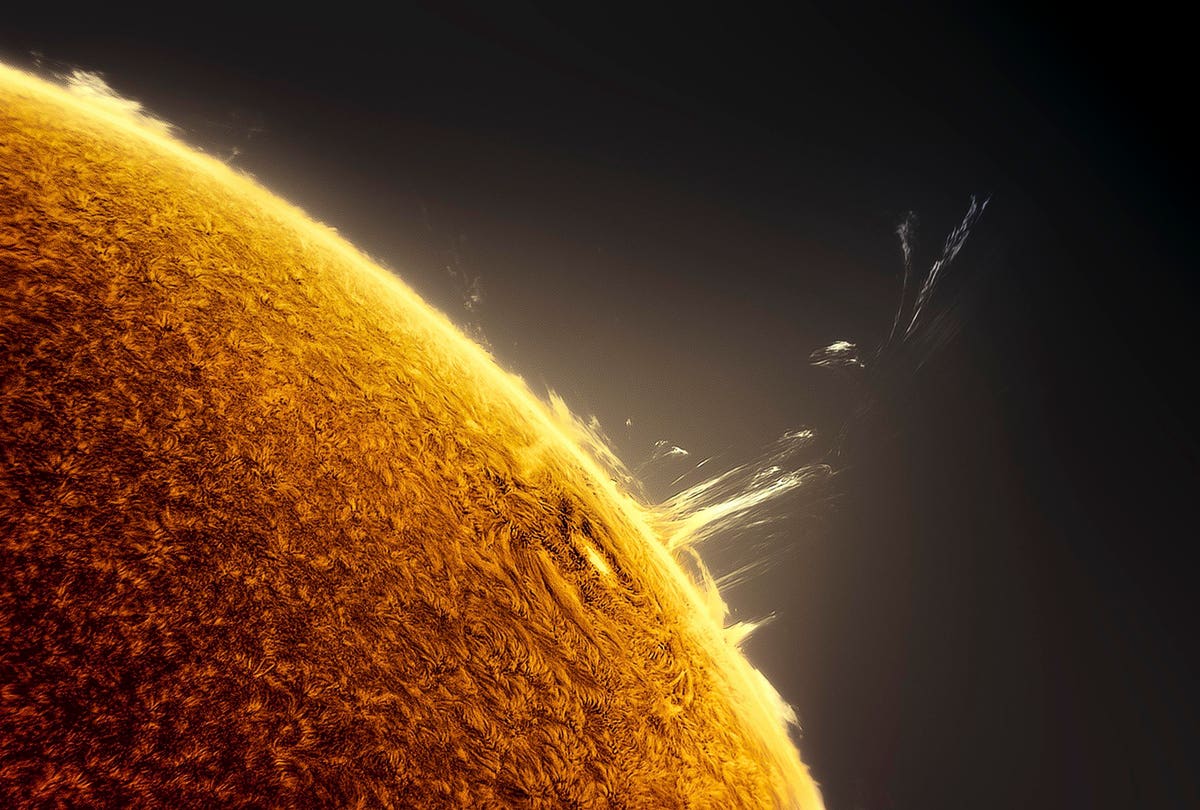Exquisite new photos of the sun close to its once-a-decade “solar maximum” phase have been shortlisted for an annual astrophotography context.
With the sun now approaching its most powerful and intense period of activity for some years, the Astronomy Photographer of the Year competition includes three incredible images that make use of the latest techniques to capture solar prominences and solar flares.
The competition, which is run by the Royal Observatory Greenwich in London, attracted 4,000 entries this year from amateur and professional photographers in 64 countries.
One of the most impressive shortlists is for the “Our Moon” category, which encompasses the lunar surface, the moon’s conjunction with planets, and lunar eclipses and transits. The images in this category showcase the moon in all its beauty, from its cratered surface to its dramatic shadows.
The winner of the “Our Sun” category—one of 11 categories—will be announced on September 14, 2023, along with the overall winner of the competition. The winning images will be displayed in an exhibition at London’s National Maritime Museum from September 16, 2023.
Solar Flare X1 from AR2994 in ‘Motion’
Portuguese photographer Miguel Claro—a renowned astrophotographer—took the main image, above, from Dark Sky Alqueva in the Évora district of Portugal.
His photo shows a solar flare—an intense burst of radiation from a sunspot—which is becoming more common as the sun ramps-up its activity. The image is from a 27-minute time lapse on April 30, 2022 of Active Region 2994 that Claro captured using a Sky-Watcher Esprit ED120 telescope.
The Great Solar Flare
Another shot of the sun approaching solar maximum—also shortlisted is “The Great Solar Flare,” an image by Mehmet Ergün from Traisen, Germany.
It shows a solar flare on the left of the image stretching 435,000 miles into space. It was taken using a Lunt LS60 B1200 Double Stack telescope.
Grazing Mammoths
The final stunning solar image shortlisted for the Astronomy Photographer of the Year competition in the “Our Sun” category is “The Great Mammoth,” an image of a solar prominence on the limb of the sun. Visible to the naked-eye only during a total solar eclipse, Rafael Schmall captured this a bright feature extending outward from the sun’s photosphere using a Lunt LS 100 H-alpha telescope.
It was taken from Zselic National Landscape Protection Area, an International Dark Sky Park in Zselickisfalud, Hungary
China Space Station Transits Active Sun
Nominated in the “People and Space” category is this remarkable ransit of a space station across the sun. However, while most such images use the International Space Station, this one shows the China Space Station (CSS), which has recently been completed.
Produced by selecting the nine clearest photos from captured video frames taken through a Lunt 152T telescope, the image was taken from by photographer Letian Wang from Beijing, China.
Wishing you clear skies and wide eyes.
Read the full article here





